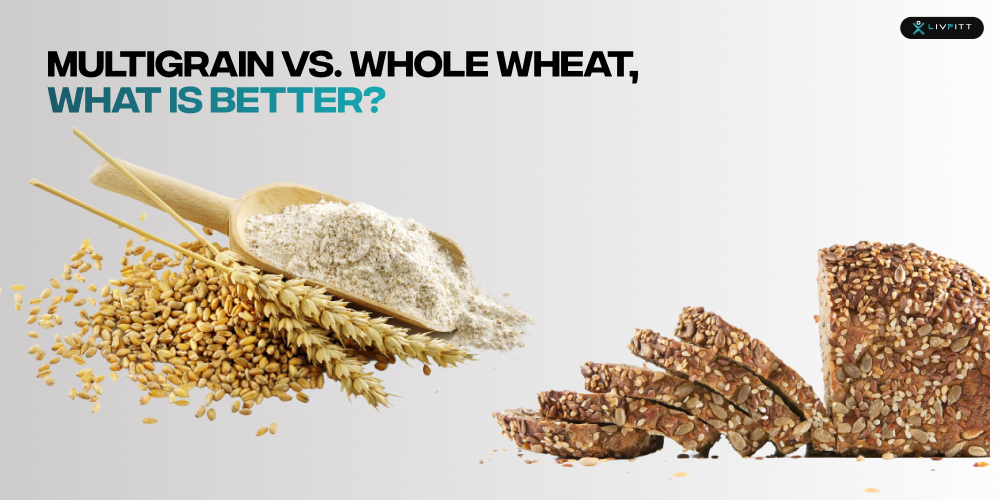
Multigrain Vs. Whole Wheat, what is better?
Multigrain foods
As the name says, multigrain means that the food- cookies or Atta (flour) - contains more than one variety of grains. However, there is no guarantee that the food contains whole grains, meaning it could be a refined variety of wheat, millet or any other type of grain. So unless you’re sure that your multigrain food is made of whole grains, it can’t be the healthiest choice. The best way to check would be to read the label. And pick it up only if the label specifies that it’s made of whole-grain ingredients.
Whole wheat foods
Food is called whole wheat when it’s made of the entire cereal grain, in this case, wheat. The whole wheat grain includes the cereal germ and bran that provide fibre, and are absent in refined grain products; and the endosperm, which is a source of starch. This would apply to any other whole cereal like millet, rice or oats.
So, whole wheat bread and other foods would be a healthy option, as they’ll provide you with fibre, protein, several vitamins, minerals and carbs.
OUR VERDICT
As said, multi-grain foods are healthy only if they contain multiple grains made of the entire cereal grain. If they aren’t, then you’ll just be eating refined food made of many types of grains, and that can’t be the best choice. Whole wheat options are healthy choices. Wheat is a good source of protein, carbohydrates, fibre, vitamins and minerals.

